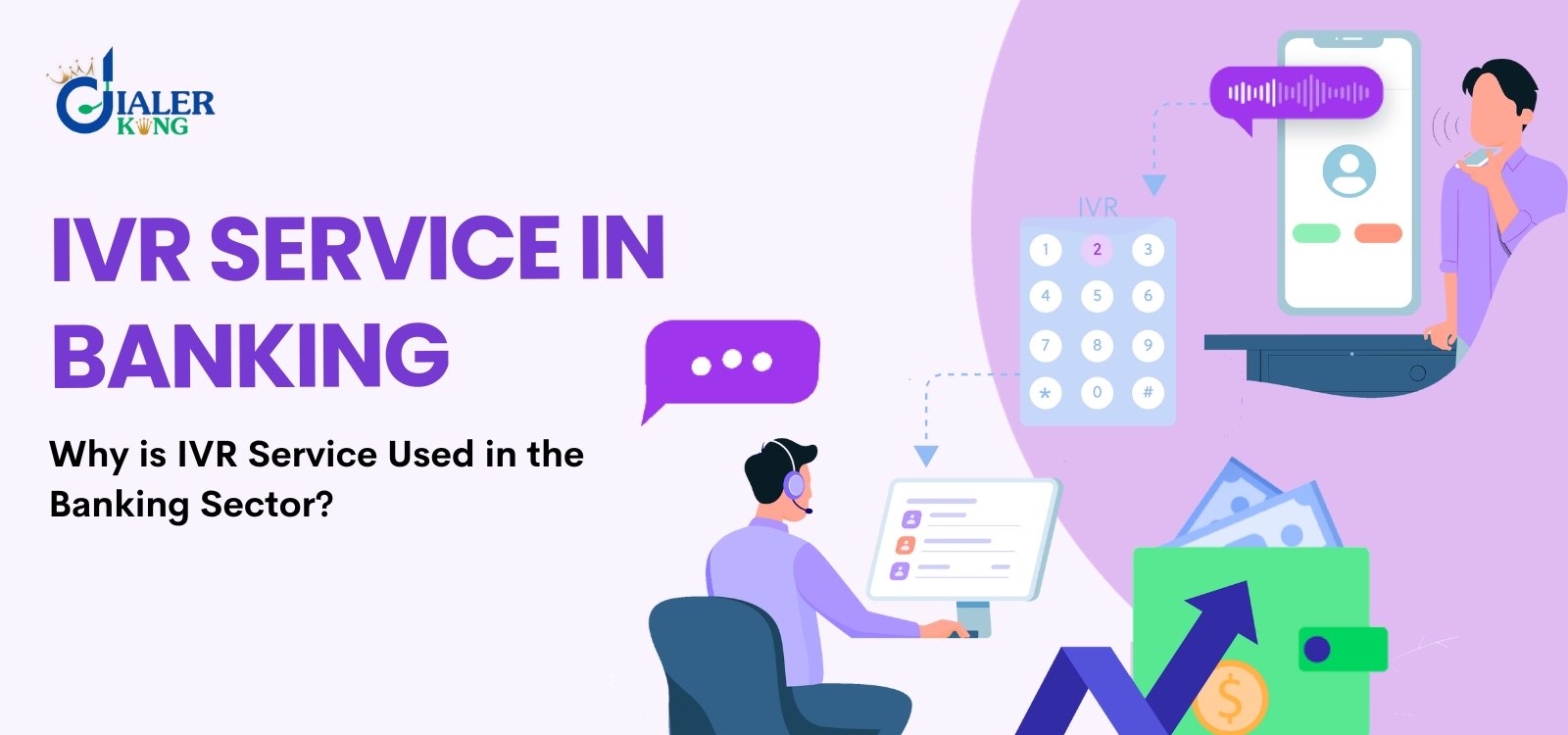
IVR technology has been around since the 1970s, but it wasn’t until the 1990s and 2000s that it became widely adopted by businesses, particularly in the banking and telecommunications industries. IVR (Interactive Voice Response) is used in the banking sector primarily to improve customer service and reduce costs.
What is IVR?
Interactive Voice Response (IVR) is a technology that enables businesses to automate and streamline customer interactions over the phone. IVR systems use pre-recorded voice prompts and touch-tone keypad responses to guide customers through a menu of options, allowing them to access information and perform tasks without speaking to a live agent.
How Does IVR Work?
When a customer calls a business that uses IVR, they are greeted by a recorded message that prompts them to select from a menu of options using their phone’s keypad. For example, the message might say, “Welcome to ABC Bank. For account balance, press 1. For transaction history, press 2. For customer service, press 3.”
Once the customer selects an option, the IVR system responds with a pre-recorded message or a series of messages, guiding the customer through the requested task. For example, if the customer selected option 1 for account balance, the IVR system might say, “To hear your account balance, please enter your account number followed by the pound key.”
The customer enters their account number and pound key using their phone’s keypad, and the IVR system retrieves their account information and reads it back to them. If the customer has a more complex request, such as disputing a transaction, the IVR system might transfer them to a live agent who can assist them further.
Here are Some Reasons Why IVR is Used in the Banking Sector
24/7 Availability
IVR systems are available 24/7, which means that customers can access their accounts and perform transactions at any time of the day or night, without the need for human assistance.
Call Routing
IVR systems can be used to route calls to the appropriate department or agent, based on the customer’s needs. This can help to reduce wait times and improve the efficiency of the bank’s customer service operations.
Integration with Other Systems
IVR systems can be integrated with other banking systems, such as core banking systems, payment processing systems, and customer relationship management (CRM) systems. This can enable a more seamless and efficient customer experience, as well as provide the bank with valuable insights into customer behavior.
Increased Efficiency
IVR systems can help banks automate routine tasks such as balance inquiries, fund transfers, and bill payments, allowing their customer service representatives to focus on more complex inquiries and issues. This can increase the efficiency of the overall banking process, leading to faster resolution times for customer issues.
Multilingual Support
IVR systems can support multiple languages, enabling banks to serve customers who speak different languages. This can be particularly useful in countries with diverse populations or in regions where multiple languages are spoken.
Convenience
IVR systems allow customers to perform a wide range of transactions, such as checking their account balance, transferring funds, or paying bills, without having to visit a physical bank branch or speak to a customer service representative.
Improved Security
IVR systems can be used to authenticate customers through their personal identification number (PIN) or other security measures. This helps to protect against fraud and unauthorized access to accounts.
Transactional Capabilities
IVR systems can enable customers to perform a wide range of banking transactions, such as transferring funds between accounts, paying bills, and even applying for loans. This can save customers time and provide them with greater control over their finances.
Marketing and Promotions
IVR systems can be used to promote bank products and services to customers. For example, a bank might use an IVR system to offer a credit card upgrade or a special interest rate on a loan.
Cost-effective
Using an IVR system can be more cost-effective for banks than having a large customer service team available around the clock.
Data Collection
IVR systems can collect valuable data on customer interactions, such as frequently asked questions and common issues, allowing banks to identify areas for improvement in their customer service processes.
Scalability
IVR systems can be scaled up or down depending on the bank’s needs. For example, during peak periods, such as tax season, the bank might need to increase the capacity of its IVR system to handle a higher volume of calls. Conversely, during slower periods, the bank might be able to reduce the capacity of its IVR system to save on costs.
Faster service
IVR systems can handle a large volume of calls simultaneously, reducing wait times for customers who need to speak to a customer service representative.
Personalization
IVR systems can be customized to provide personalized messages and options based on a customer’s account history, preferences, and needs.
Fraud Prevention
IVR systems can be used to authenticate customers and prevent fraud. By requiring customers to enter a PIN or other security information, banks can ensure that only authorized individuals have access to account information and transaction capabilities.
IVR by Dialerking
DialerKing is a leading provider of IVR software solutions that enable businesses to automate and streamline their customer service operations. DialerKing’s IVR system is designed to handle a high volume of calls simultaneously, while also providing a personalized and efficient customer experience.
Key Features of Dialerking’s IVR Software Solution:
Customizable Menus
IVR system offers customizable menus that enable businesses to tailor the customer experience to their specific needs. Businesses can create a menu of options that matches their products and services, and update it as needed to reflect changes in their offerings.
Personalized Greetings
IVR system can recognize the customer’s phone number and greet them by name, providing a personalized and welcoming experience.
Voice Recognition
It can be equipped with voice recognition technology, enabling customers to interact with the system using their voice instead of a touch-tone keypad. This can make the customer experience even more seamless and efficient.
Customizable Prompts
IVR system offers customizable prompts that enable businesses to provide customers with targeted information and services based on their account history and preferences.
Conclusion
In conclusion, IVR systems are an efficient way for banks to provide customer service and offer a convenient and flexible banking experience to their customers.
Dialerking’s IVR software solution is a valuable tool for the banking sector that enables them to provide efficient, convenient, and personalized customer service while also helping to prevent fraud, improve security, and offer customers access to a wide range of information and services.

